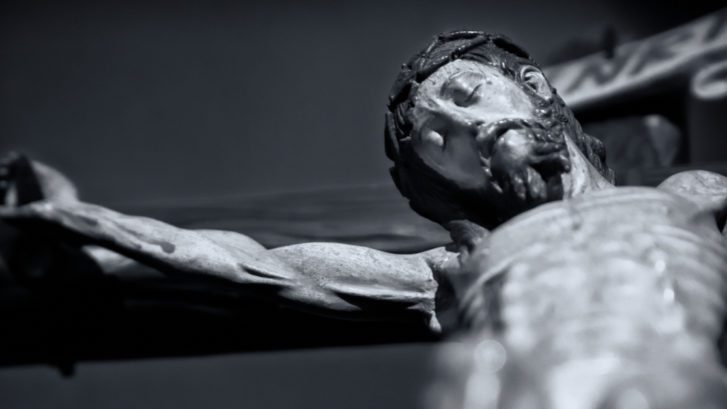Jesus lived in a society where caste lines were sharply drawn. It was clearly understood that people stayed with their own kind. Good people did not mix and mingle with bad people. The rich never went near the poor except to drop a coin in their cups. Jesus refused to play by that rule; His righteousness was a matter of inclusion. To Him people were simply people and He had room and time for all of them.
This attitude kept Him constantly out of step with the most influential people of the community. He was an inclusive man living in an exclusive society. That created conflict, it rocked the boat, and it disturbed the status quo. People kept trying to get Him to sit down, to shut up, and to act like a holy Man ought to act in their eyes. But He would not comply and that caused problems. Today’s gospel reading is an example of this ongoing conflict.
The Scribes and Pharisees observed with scornful eyes the crowd that was gathered around Jesus. Most of them were people of doubtful reputation. But in the presence of Jesus they found acceptance and respect. How could a Man like this call Himself a Prophet? He cannot even tell the difference between good people and bad. They murmured against Him saying this Man welcomes sinners and eats with them.
Jesus did not deny it. But He did explain it by the telling of three stories. These stories tell us about the inclusiveness of Jesus. First, it was based on His understanding of people. He saw them as lost and needing to be found. They were like coins that had fallen to the floor and rolled under the furniture. They were like sheep that had wandered away from the flock.
They were like reckless youth who had rebelled and run away from home. People were lost in different ways and different places. The desire of Jesus was to help them find their way. That was why He moved with such ease across all dividing lines. To Him those lines were not real; they were just figments of the human imagination. He crossed over them as easily as you and I step over lines in a sidewalk.
One day He would have dinner in the house of a respected Pharisee named Simon. Another day He would reside in the home of a despised tax collector named Zacchaeus. Both were the same to Him, they were just two of God’s children. The only difference was that one of them knew it and the other did not. The people with whom Jesus lived had built all kinds of barriers. They were designed to shut themselves in and to shut others out. Some of them were based on gender.
Men were seen as superior to women. Yet, Jesus would not condemn the woman caught in adultery. He reached out to the woman at the well who had five husbands. Some of the barriers were based on race, especially if they were Samaritan. Some barriers were based on religion. Those who carefully kept the law were superior to those who did not.
Jesus broke the most sacred of Jewish laws, the Law of the Sabbath. He said, “Were we made for the Sabbath or the Sabbath made for us?” Some of them were based on physical condition. Jesus healed the lepers and spoke to them. But worst of all, He stretched out His hand and touched one and cured Him both in mind and body. Jesus despised all of these barriers and would not acknowledge a single one of them. To Him all people were the same.
Jesus also changed our idea of God. Some thought of Him as frowning Judge, handing out punishments, but not Jesus. In His mind, God was like that woman with a broom in hand searching for a lost coin. He was a Shepard with a sheep on His shoulders carrying it back to the fold. He was a father welcoming wayward son and pleading with another to come to the party. This is what Jesus was saying to the Scribes and Pharisees.
He was inviting them to the party of divine grace and forgiveness. Sometimes this final parable is treated as an either/or story. We make the younger son the good guy and the older son the bad guy. But I do not think Jesus saw it that way. He shows the Father reaching out to both sons. He cared for the one who came home smelling of cheap booze. And he cared for the one who came from the field with honest sweat on his brow.
By these stories, Jesus shows us that His grace embraces both Jew and Gentile, male and female, Saint and sinner. At every mass we gather in the name of the inclusive Christ. Let us try to become a church for the outcast, and not a church that casts out people.


